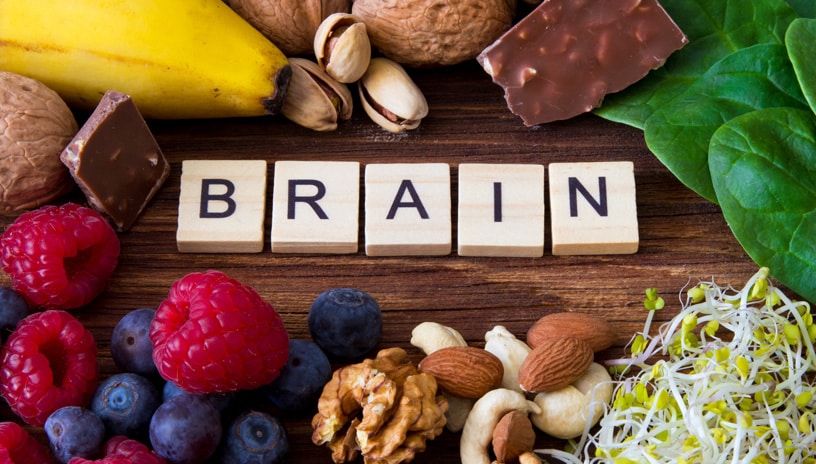The Role of Nutrition in Brain Health

Can proper nutrition support brain health and lower the risk of dementia?
How does nutrition affect brain health?
The brain requires a steady supply of nutrients to function properly. Scientific research indicates that in addition to a healthy diet and lifestyle, certain vitamins, minerals, and healthy fats help improve brain health. Conversely, poor nutrition can lead to inflammation, high blood pressure, insulin resistance, cognitive decline, and dementia, especially in the elderly.
Key Nutrients That Support Brain Health
Consider incorporating brain-boosting foods into a balanced and nutritious diet to help maintain cognitive function. Here are some of the most beneficial nutrients for brain health:
Omega-3 Fatty Acids
These nutrients are found in fatty fish (salmon, mackerel, and sardines), flaxseeds, and walnuts. Omega-3 fatty acids reduce inflammation and support brain cell function. Studies suggest that higher omega-3 intake is associated with a lower risk of Alzheimer’s disease and other forms of dementia.
Antioxidants
Vitamins C, E, and flavonoids found in berries, dark chocolate, and green tea also promote brain health. Specifically, these nutrients help protect brain cells from oxidative stress, a condition that can lead to cognitive decline. A diet rich in colorful fruits and vegetables provides powerful antioxidants and supports long-term brain health.
B Vitamins
Folate, vitamin B6, and vitamin B12 help reduce homocysteine levels. Homocysteine is an amino acid linked to brain atrophy and memory loss. Good sources of B vitamins include leafy greens, eggs, legumes, and fortified cereals.
Vitamin D
Low levels of vitamin D have been associated with an increased dementia risk. Sunlight exposure and foods such as fortified dairy products, fatty fish, and mushrooms can help maintain optimal vitamin D levels.
Polyphenols
Polyphenols are plant compounds found in olive oil, red wine (in moderation), cocoa, and certain fruits. These beneficial components have been shown to reduce inflammation and support brain health.
The Best Diets for Brain Health
Certain dietary patterns have been found to promote cognitive function and reduce the risk of dementia. Healthy nutrition-based diets worth considering include:
Mediterranean Diet
This diet emphasizes whole grains, lean proteins, healthy fats, and an abundance of fruits and vegetables. Research suggests that following a Mediterranean diet can reduce the risk of cognitive decline.
DASH Diet (Dietary Approaches to Stop Hypertension)
Originally designed to lower blood pressure, this diet also benefits brain health due to its emphasis on whole foods and limited sodium intake.
MIND Diet (Mediterranean-DASH Intervention for Neurodegenerative Delay)
A hybrid of the Mediterranean and DASH diets, the MIND diet emphasizes specific foods considered beneficial for brain health. These include leafy greens, nuts, berries, and fish, while limiting the consumption of processed foods and added sugar.
Foods to Avoid
Not surprisingly, certain foods in excess can increase the risk of dementia. Limiting or avoiding the following can help protect your general well-being, including your cognitive function:
- Highly processed foods (fast food, sugary snacks, and processed meats)
- Excessive sugar and refined carbs (white bread, pastries, and soda)
- Unhealthy fats (trans fats found in margarine, fried foods, and processed snacks)
- Excessive alcohol consumption, which can contribute to brain shrinkage and cognitive decline
Nutrition and Brain Health: Answering the Question
Whether you are 17 or 70, good nutrition plays a crucial role in our health, including our brain health. Support your cognitive function and overall well-being by consuming nutrient-dense foods, including those identified above.
For more information on the benefits of good nutrition and overall health and well-being, contact your healthcare provider or the Moultrie County Health Department.
If you or someone you know is living with or affected by dementia, contact the Moultrie County Health Department for assistance through the Dementia Caregiver Program.

